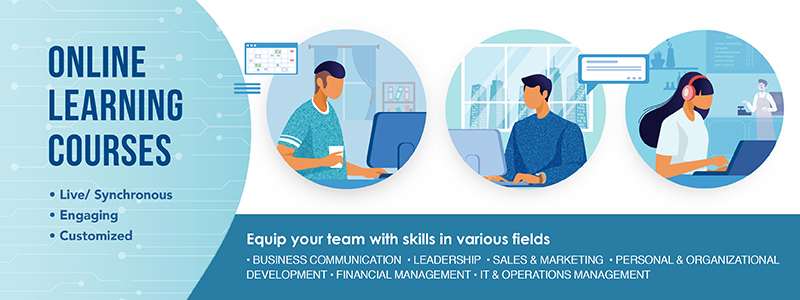MAKING THE CASE FOR E-CLASSROOMS
Most employees still prefer F2F (face-to-face) learning as methodologies evolve into more workshop-style training. They want a more interactive experience, which for them is a welcome respite from the day-to-day grind.
But training and development practitioners continue to explore e-learning as a viable alternative. We asked Ryan Buenafe, an expert on instructional design, talent management and organizational development, why he believed e-learning should have a place in every company’s training budget.
Why should we bother with e-learning when our team enjoys F2F workshops?
Good e-learning programs deliver learning in a way that can be accessed by large audiences, across multiple locations, at the lowest cost per student. As organizations continue to grow and scale globally, the method of training via an instructor-led class will become ineffective because to reach large audiences, you either hire more trainers, build or rent more training rooms, or do what many organizations have already figured out.
Move your learning programs to an e-learning format, making it accessible to your audience, anywhere they are, and at any time of the day.
Why should a company invest in designing its own e-learning courses? Aren’t there “free” online resources available?
Bought courses save time for the e-learning team; they are easy to deploy. These courses work great for topics that apply to any industry or career level.
Built courses are customized because they contain specific learning outcomes that are tied to company-specific strategic goals.
How do we overcome resistance to e-learning? Do we have to do away with F2F?
In-person classroom training is an investment, and a very good one. The [problem] is that it may only be offered every few months to the organization’s top talents. What if someone wants to learn how to do something right away, or wants a refresher like how to conduct an annual performance review discussion?
I suggest that you have e-learning content available to support and reinforce what people learn face to face in the classroom.


